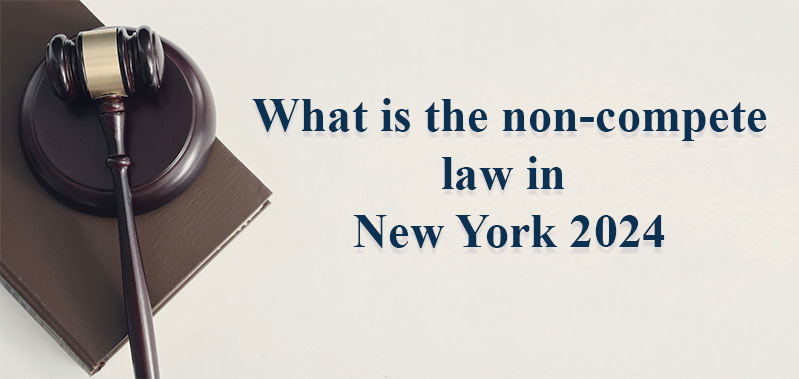
What is the non-compete law in New York 2024?
What is the non-compete law in New York 2024?
Non-compete agreements are legally binding agreements that some employers impose on their employees to restrict them from working for a competing company for some time after leaving the job. Given that Employees who signed non-competes are unlikely to leave because the legal agreement limits their mobility, the classic non-compete components included preventing the complaining party from obtaining a trade secret or a customer relationship for a specific amount of time.
The current global picture regarding litigation of non-compete has started to change. Recent proposals, such as Assembly Bill A1278, targeting further restrictions on the use and the enforcement of non-compete, will potentially decrease further legal battles on whether a non-compete can be enforced or not. The law would make it illegal for businesses to counteroffer without the approval of the Ministry of Economy. It would ban the use of non-compete clauses for most employees who earn below a set number.
As a growing body of research shows that non-competes suppress wages, reduce job mobility, and stifle innovation, states are moving rapidly to restrict them. Currently, four states ban the use of non-competes entirely, and 33 states plus DC restrict their use.
Momentum has grown behind state-level non-compete reform in recent years. The table below summarises the bills that have been introduced or seen action in state legislatures in 2024 which would restrict the use of non-competes if enacted. It was updated as of October 2024.
The table sorts proposed bills into five broad categories:
- Complete or near complete bans, which would eliminate all non-competes in an employment context within the state.
- Income thresholds that prohibit non-compete agreements for workers making below a certain amount.
- Healthcare industry bans would eliminate non-competes for certain types of healthcare workers (healthcare industry bans are in a separate category due to the high volume of healthcare-specific legislation in state legislatures).
- Industry bans that would prohibit non-competes for an entire category of worker (excluding the healthcare industry).
- Other bills may include changes or clarifications to the legal basis for a non-compete, the definition of a non-compete agreement, or steps an employer must take to enforce a non-compete but do not exempt an entire class of workers from non-compete agreements.
The bill further voids both current and future agreements, stating that "any non-compete agreement between an employer and a worker must be rescinded by the employer no later than the date the local law that created this section goes into effect.” The bill also prohibits employers from representing to employees that they are subject to a non-compete agreement “where the employer has no good faith basis to believe that the worker is subject to an enforceable non-compete agreement.” The bill’s enforcement provisions include a $500 fine per violation. The bill would take effect 120 days after it becomes law.
Several lawsuits have been brought challenging the FTC’s ban on non-competition agreements. However, it is important to be prepared and discuss your situation with an attorney now. Non-compete clauses in healthcare are not just legal jargon—they’re about people, relationships, and the trust between providers and patients. As New York continues to refine its non-compete laws in 2024, it’s essential to focus on creating a system that supports both professional growth and public health. By fostering fairness and transparency, these changes promise a healthier future for the healthcare workforce and the communities they serve.
Noncompete Clauses in Healthcare
The healthcare sector has been under particular criticism due to the possible negative effect non-competes may have on patient access and the uninterrupted provision of care. For example, these agreements prevent a physician from performing the same practice within some distance from a previous employer, which can lead to patients losing access to familiar and reliable providers. Such considerations are more and more seen as unacceptable in the context of public health.
What it Means for 2024 and After
The changing political landscape suggests to healthcare providers that there is no need to continue showing reliance on non-compete clause agreements. This entails complying with the new policies, which would involve changing the current contracts while also providing for allowances such as non-solicitation or confidentiality which would not be overly restrictive.
Further, with the changes to the legislation status quo, there is a need for employees to vet their contracts adequately or seek legal counsel to help them interpret the terms. If the changes to the enactment of these laws result in practice, New York state healthcare workers will be able to seek various opportunities without restrictions.




